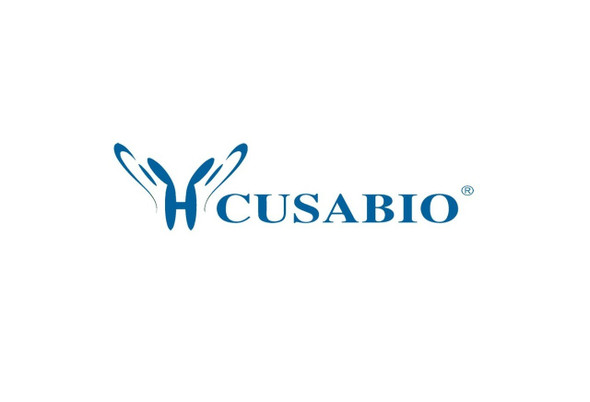Cusabio Human Recombinants
Recombinant Human Poliovirus receptor (PVR), partial | CSB-EP019093HU
- SKU:
- CSB-EP019093HU
- Availability:
- 13 - 23 Working Days
Description
Recombinant Human Poliovirus receptor (PVR), partial | CSB-EP019093HU | Cusabio
Alternative Name(s): Nectin-like protein 5 Short name: NECL-5 CD_antigen: CD155
Gene Names: PVR
Research Areas: Microbiology
Organism: Homo sapiens (Human)
AA Sequence: WPPPGTGDVVVQAPTQVPGFLGDSVTLPCYLQVPNMEVTHVSQLTWARHGESGSMAVFHQTQGPSYSESKRLEFVAARLGAELRNASLRMFGLRVEDEGNYTCLFVTFPQGSRSVDIWLRVLAKPQNTAEVQKVQLTGEPVPMARCVSTGGRPPAQITWHSDLGGMPNTSQVPGFLSGTVTVTSLWILVPSSQVDGKNVTCKVEHESFEKPQLLTVNLTVYYPPEVSISGYDNNWYLGQNEATLTCDARSNPEPTGYNWSTTMGPLPPFAVAQGAQLLIRPVDKPINTTLICNVTNALGARQAELTVQVKEGPPSEHSGISRN
Source: E.coli
Tag Info: N-terminal 6xHis-SUMO-tagged
Expression Region: 21-343aa
Sequence Info: Extracellular Domain
MW: 51.1 kDa
Purity: Greater than 90% as determined by SDS-PAGE.
Relevance: Mediates NK cell adhesion and triggers NK cell effector functions. Binds two different NK cell receptors: CD96 and CD226. These interactions accumulates at the cell-cell contact site, leading to the formation of a mature immunological synapse between NK cell and target cell. This may trigger adhesion and secretion of lytic granules and IFN-gamma and activate cytoxicity of activated NK cells. May also promote NK cell-target cell modular exchange, and PVR transfer to the NK cell. This transfer is more important in some tumor cells expressing a lot of PVR, and may trigger fratricide NK cell activation, providing tumors with a mechanism of immunoevasion. Plays a role in mediating tumor cell invasion and migration.
Reference: "CD155/PVR plays a key role in cell motility during tumor cell invasion and migration."Sloan K.E., Eustace B.K., Stewart J.K., Zehetmeier C., Torella C., Simeone M., Roy J.E., Unger C., Louis D.N., Ilag L.L., Jay D.G.BMC Cancer 4:73-73(2004).
Storage: The shelf life is related to many factors, storage state, buffer ingredients, storage temperature and the stability of the protein itself. Generally, the shelf life of liquid form is 6 months at -20?/-80?. The shelf life of lyophilized form is 12 months at -20?/-80?.
Notes: Repeated freezing and thawing is not recommended. Store working aliquots at 4? for up to one week.
Function: Mediates NK cell adhesion and triggers NK cell effector functions. Binds two different NK cell receptors
Involvement in disease:
Subcellular Location: Isoform Alpha: Cell membrane, Single-pass type I membrane protein, SUBCELLULAR LOCATION: Isoform Delta: Cell membrane, Single-pass type I membrane protein, SUBCELLULAR LOCATION: Isoform Beta: Secreted, SUBCELLULAR LOCATION: Isoform Gamma: Secreted
Protein Families: Nectin family
Tissue Specificity:
Paythway:
Form: Liquid or Lyophilized powder
Buffer: If the delivery form is liquid, the default storage buffer is Tris/PBS-based buffer, 5%-50% glycerol. If the delivery form is lyophilized powder, the buffer before lyophilization is Tris/PBS-based buffer, 6% Trehalose, pH 8.0.
Reconstitution: We recommend that this vial be briefly centrifuged prior to opening to bring the contents to the bottom. Please reconstitute protein in deionized sterile water to a concentration of 0.1-1.0 mg/mL.We recommend to add 5-50% of glycerol (final concentration) and aliquot for long-term storage at -20?/-80?. Our default final concentration of glycerol is 50%. Customers could use it as reference.
Uniprot ID: P15151
HGNC Database Link: HGNC
UniGene Database Link: UniGene
KEGG Database Link: KEGG
STRING Database Link: STRING
OMIM Database Link: OMIM









